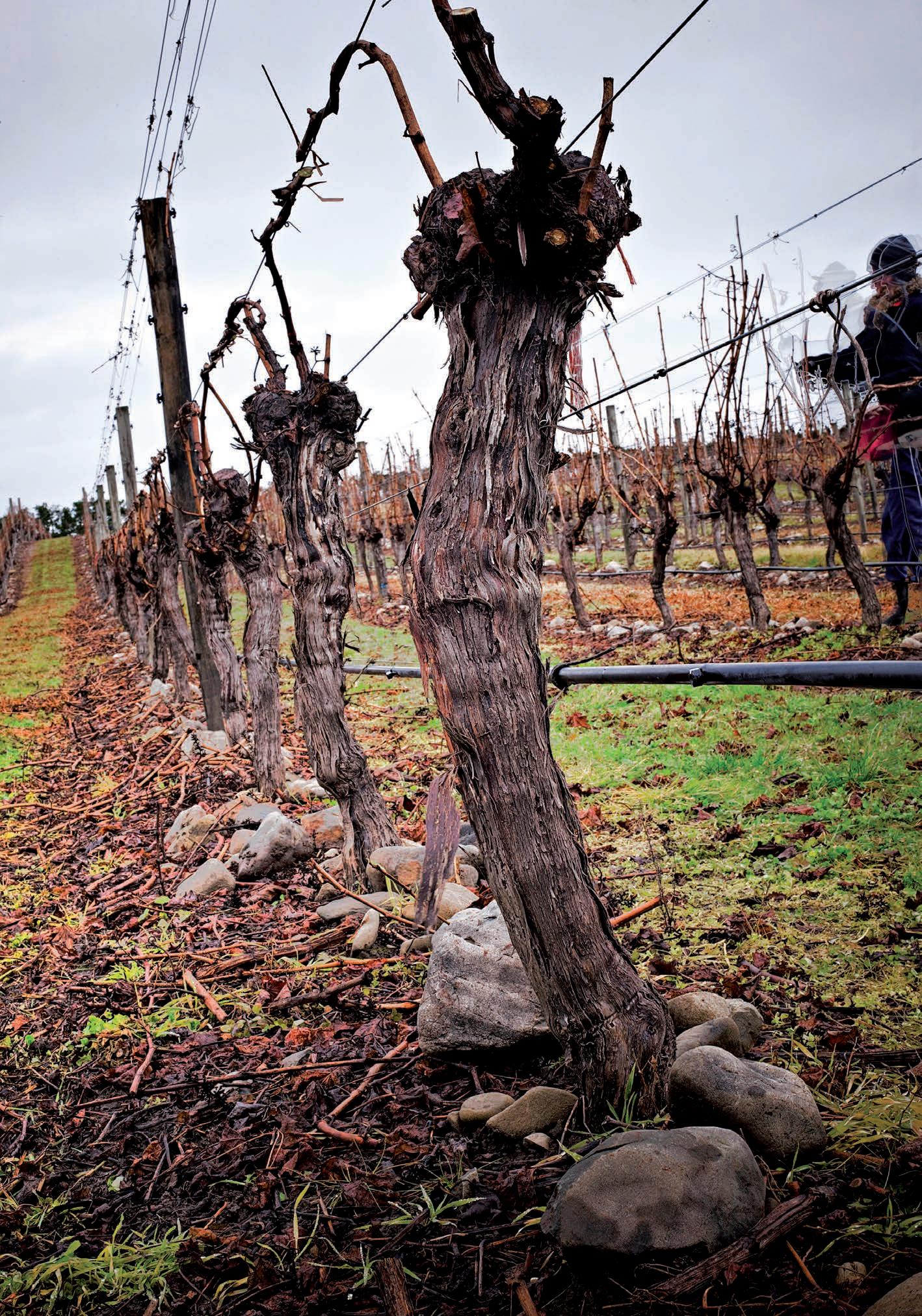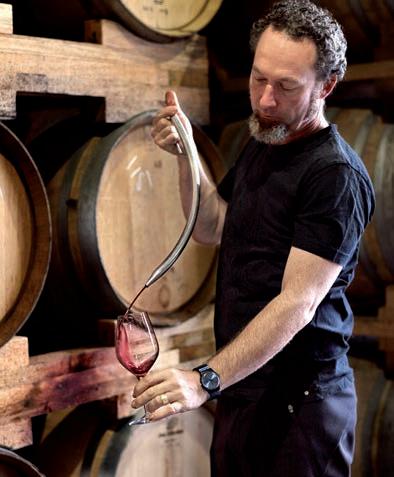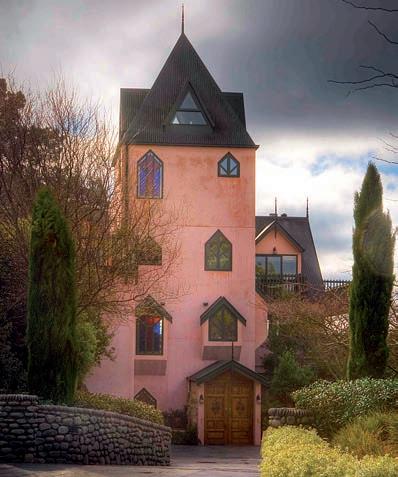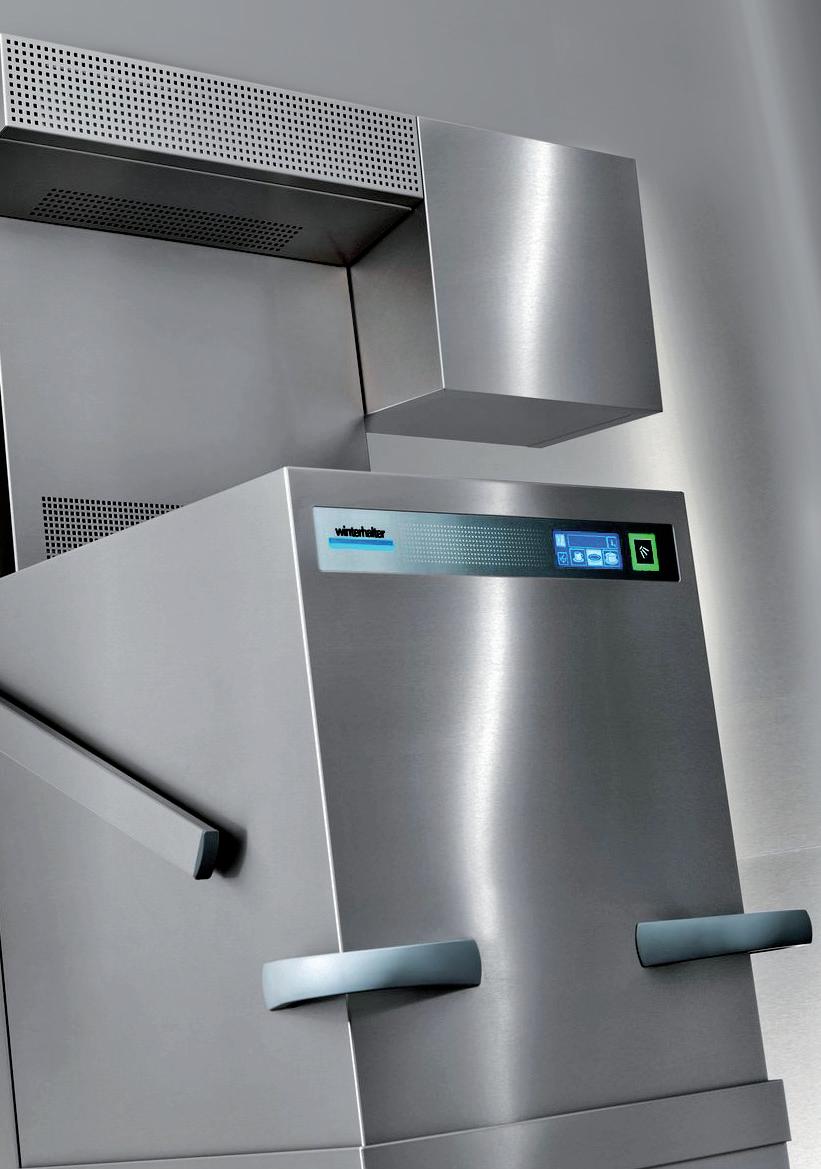
8 minute read
Columns
By Marisa Bidois, CEO, NZ Restaurant Association marisa@restaurantnz.co.nz or 0800 737 827
As we lead up to the 2020 Election, the single most important issue for the Restaurant Association is the hospitality sector’s recovery following the COVID-19 pandemic. We are calling on the next Government to work with us to create a concise pathway for rebuilding and repositioning the sector for the future.
Nationally, the hospitality sector generated annual sales in excess of $11 billion and employed more than 133,000 people, across 17,000 businesses in 2019 1 .
Unfortunately, this has been decimated by COVID-19. Our 2020 Election Manifesto sets out five key priorities to best support the recovery of our sector and ensure government policy matches the realities of everyday hospitality operations.
These priorities are: 1. Le ad a Hopso Reset: Attract and train New Zealand hospitality workers 2. Est ablish a Hospitality Minister and dedicated hospitality unit within MBIE 3.Rework New Zealand’s Food Story 4. Examine and refine hospitality’s regulatory environment 5. Encourage hospitality as an employment pathway for life
The Restaurant Association calls for greater recognition and better oversight from the Government in the form of a dedicated Minister and hospitality unit within the Ministry for Business, Innovation and Employment (MBIE).
For a sector of our size and influence, to not have a dedicated Minister and policy shop to consult with or call on for advice, means Government policy regularly misses the mark when considered against the realities of our sector. This became increasingly apparent throughout the COVID-19 pandemic response.
In a recent snapshot survey, 93 percent of Restaurant Association members do not believe the Government (in particular officials) have a sufficient understanding of the hospitality industry in order to make effective decisions. 3
The Restaurant Association calls on the next Government to: • e stablish a Hospitality Minister portfolio and • cr eate a dedicated hospitality unit within MBIE to lead Government hospitality responses.
The establishment of a Hospitality Minister and dedicated hospitality unit within MBIE will signal the next Government’s intention to play an active role in the sector’s recovery, help public sector coordination and provide much needed leadership around hospitality policy development.
We are also calling for the new Government to: • commence a government-wide review of hospitality regulations, and • lead a call for local government bodies to review their administrative procedures and consider ‘best practice’ standardisation where appropriate.
Increasing complexity around rules and regulations is making it difficult for our member businesses to grow and provide job opportunities. There is no disagreement in the vital role regulation plays in hospitality to ensure a level playing field and keep consumers safe, however regulation changes over the past three years have weighed heavily on hospitality: employment law changes, additional health and safety obligations, food safety changes, and immigration law tweaks are just a few.
Our Association always provides members “best practice targets” in an effort to ensure businesses are excelling across all aspects of their operations. Continued movement of goal posts and increased regulation is ostensibly slowing productivity and stalling business growth. Employing the right people, with the right skill set, is critical for businesses on the road to recovery from COVID-19, and for the country’s productivity and economy as a whole.
It is acknowledged that currently border restrictions present a challenging hurdle, however, when no suitable New Zealanders have been identified, strategies that ensure migrant workers can continue to be a part of the hospitality mix are important for the redevelopment of our vibrant industry. Our industry research has identified that despite extensive efforts to recruit New Zealanders, employers are still finding it very challenging filling senior roles, as they require experience and specialist skillsets. These roles are key to the effective operation of a business and our Members’ ongoing success to their businesses depends on the ability to hire.
The Restaurant Association welcomes the opportunity to work with the next Government on immigration policy that recognises the sector’s needs – one that encourages employment of New Zealanders first and foremost, while recognising the value of utilising migrant workers to facilitate skill shortage needs.
The service sector as a whole is the biggest contributor to New Zealand’s GDP, accounting for over 68 percent in 2018, making it one of New Zealand’s largest industries. 2 Despite being an enduring powerhouse of the New Zealand economy, policy made for the sector, in particular for hospitality, is fragmented, impractical and often devoid of the everyday realities of operations.
The Restaurant Association is calling on the next Government to place greater attention on our sector and create a concise pathway for rebuilding and repositioning the sector into the future.
1 Restaurant Association 2019 Hospitality Report (18 October 2019). Restaurant Association Election Survey 2020: Yes - 6.59% v.s No - 93.41% Stats NZ: Which industries contributed to New Zealand’s GDP?
grapetoglass
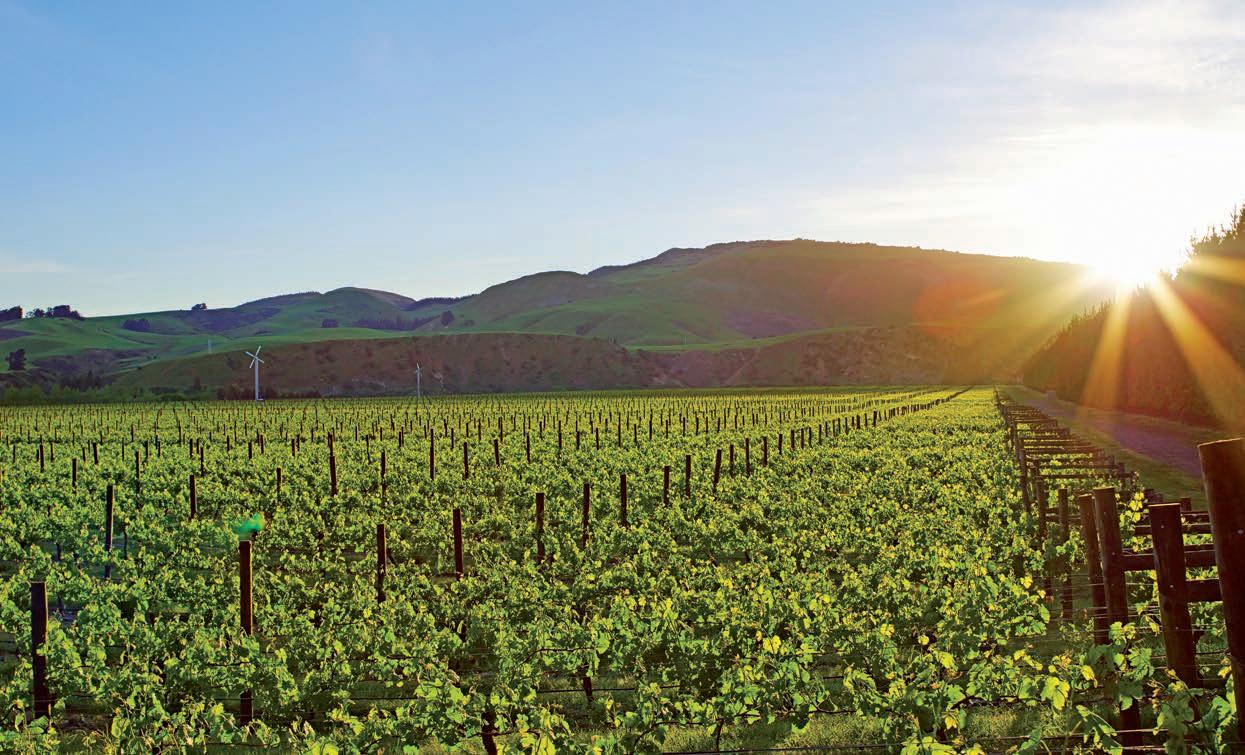
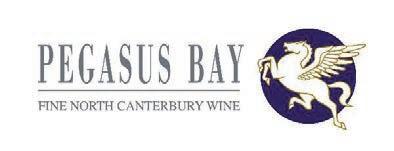
It was destined that Matthew Donaldson would become a winemaker, Pegasus Bay Fine North Canterbury Wine is a family affair after all.
“M y parents have always been passionate about wine and so I started drinking a little bit of wine during meals when I was a teenager,” Donaldson explained. “When I was 15 years old, I worked with a family friend who was a winemaker and this was around the time that my parents brought the property that is nowPegasusBayWinery/Vineyard.” The Donaldson family have been immersed in the wine industry since the early 1970s and were pioneers of local grape growing and wine making. Associate Professor and Consultant Neurologist, Ivan Donaldson, first became interested in wine when his girlfriend at the time, Christine, gave him a book simply called Wine. Penned by English industry legend, Hugh Johnson, the book started Ivan on an exciting journey, that has never stopped. After travelling to explore the wine regions of Europe, Ivan returned home to plant one of the first vineyards of modern times in Canterbury and to marry Christine. The first vineyard was a hobby with Ivan making wine in the garage at home on the weekends, in-between seeing patients at his private practice in the evening and after his shifts at the public hospital. By the mid 1980s the couple had decided there was definitely a future for wine making in Canterbury. They went on to plant Pegasus Bay with the help of their four sons, who have all ended up working in key roles within the business. Ivan, now retired from medicine, continues to oversee viticulture while Christina’s ‘happy place’ is in the winery’s extensive grounds, now beautifully well-established thanks to her careful planting over the last 30 years. Matthew Donaldson is the eldest son and graduated with an oenology degree and a postgraduate diploma in viticulture from Roseworthy College, in Australia. He has worked numerous vintages in other parts of the world, with a particular focus on Burgundy. 2020 has seen him have his 28th vintage at Pegasus Bay.
“We built the first stage of the winery in 1992 which was the year I finished wine school. As a family we are all on the same page in terms of our focus, we value quality boutique production over bulk production and profit. This has made working with my family both easy and satisfying.”
Planted in 1985 the Pegasus Bay vineyard is largely un-grafted producing ultra-low yields of grapes per vine with loose bunches and small berries. Tucked up under the lee of the Teviotdale Range, the vineyard gets maximum protection from the Pacific’s easterly breezes, while heat summation during the day is promoted by the smooth stones and gravels left behind by an ancient river bed washed down from the Southern Alps.
“We respect our piece of dirt and our farming practices are focused on its long term vitality and sustainability,” noted Donaldson. “This philosophy follows through into the wine production as well.”
Pegasus Bay is an accredited member of the NZWG sustainable viticulture programme and firmly believe in the principles of using natural methods to counteract pests and diseases, rather than the application of unnecessary pesticides and herbicides.
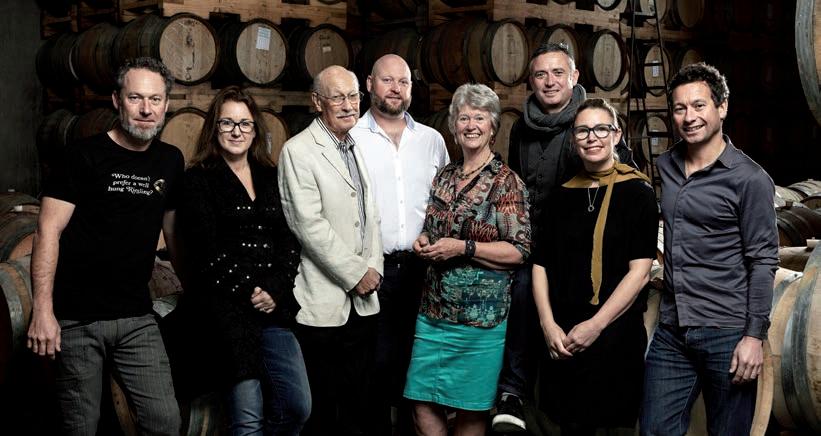
Pegasus Bay’s most challenging season was in 1994, the vineyard was just coming into a decent production but unfortunately it got frosted and that small amount of crop that was spared was very average because the vines were so out of balance. The family picked themselves up and carried on, their most successful season?
“2020, because every year we improve our understanding and learn to handle things in the vineyard and in the winery a little better,” said Donaldson. “Plus the weather was extremely kind this year.” Donaldson never wants to become complacent and wishes to keep refining Pegasus Bay wines which the family pride on being rich and balanced with character. If he could change anything about the wine industry it would be the fact that bulk production is where the money is.
“Our aim is to grow grapes of the highest quality, which fully express the features of the vineyard and to handle these with the utmost respect. Minimal intervention at all stages from vine to bottle typifies our approach.” Donaldson loves a good Riesling, fine reds and white Burgundy. When he’s not immersed in winemaking he enjoys fishing and spending time with his family and friends.
For more information visit www.pegasusbay.com
